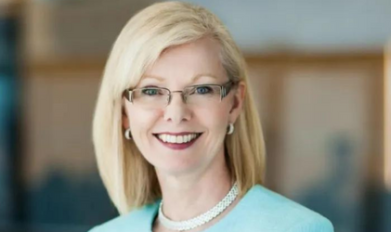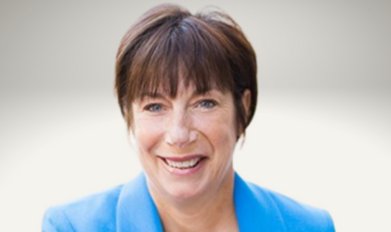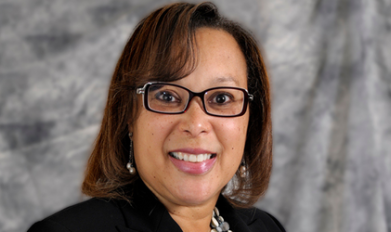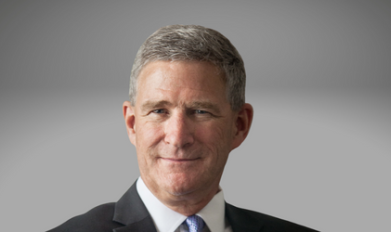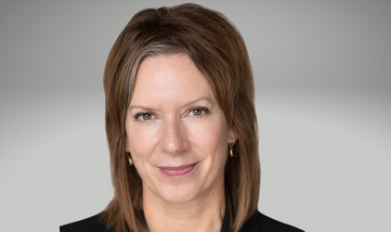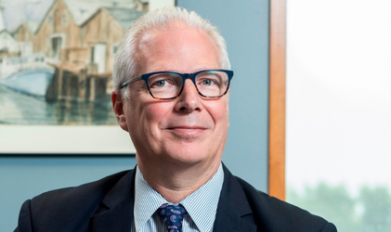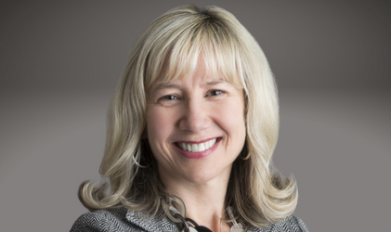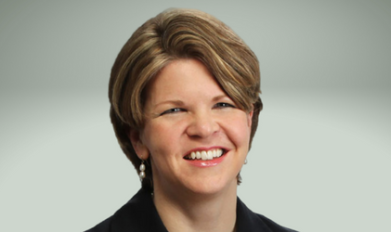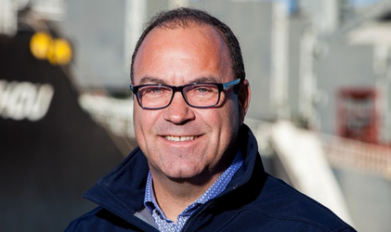A KBRS partner interviews Laura Lee Langley to gain insight into how high-impact Atlantic Canadian organizations are optimizing the potential of people to contribute to the region’s growth and prosperity and to discuss how strengthening our workforce can enhance our economic outlook.
Laura Lee Langley is the Deputy Minister of the Office of the Premier, Deputy Minister of Treasury and Policy Board, Clerk of the Executive Council, Head of the Public Service, Chief Executive Officer of Communications Nova Scotia, and Public Service Commissioner for the Government of Nova Scotia. Reflecting on her extensive public service and media experience, Langley shares her perspectives on the importance of workforce diversity, why she is so passionate about advancing the issue, and why leaders need to be learners if they truly want to make progress in creating inclusive workplaces.
Q: You’ve served in key leadership roles within the public service for the past 14 years. What feels different now in the Public Service Commission (PSC) than when you first joined?
A: I’ve always had a passion for this kind of work and establishing environments where people feel welcomed and included. I think the first time I was in a position to really effect change in that arena was 2004 when I was at Communications Nova Scotia. I realized just how woefully unprepared the workplaces were to be truly inclusive. I started looking for opportunities to create culturally sensitive and aware environments with staff who understood the importance of welcoming colleagues from different backgrounds into the workplace. It was mainly small pockets at first, but it has grown considerably since then.
It was around that time that I met with Candy Palmater, who was working at the PSC in a diversity and inclusion role. I said to her, ‘I’m ready to start hiring people and I want to prioritize underrepresented groups,’ and she said, ‘You have to slow down and make sure your workplace is ready first so you can properly support people.’ Working with her was part of my journey in learning what really being inclusive means.
What I’ve seen change since then is that now it’s in more than just pockets, deputy ministers and hiring managers embrace inclusivity because we made it a priority to instill that in everyone, to embrace it and welcome it. We also have employee networks that provide guidance, so that has been invaluable, but that is not to say we have it all worked out. We still struggle with systemic barriers because, when you have white privilege, you don’t fully understand or appreciate them, and you need to continually listen and learn so they can be dismantled.
Q: There have been a lot of really important initiatives in the last five years in this space within the PSC. What are some things you think have made the biggest impact?
A: I know it sounds small, but some departments host lunch and learns where employees share their values and traditions – everything from the origins of Kwanzaa to defining LGBTQ terminology. That created an opportunity – and in a sense gave people permission to have conversations we could not have attempted before because people were afraid to ask questions that could be politically incorrect or offensive. Those conversations have opened the door to learning and more cultural awareness in the workplace.
We have an annual diversity film festival that’s sponsored by Communications Nova Scotia. It’s a half-day of films from around the world that encourage people to understand cultural experiences and perspectives they may have never encountered before. We also launched a diversity conference, which we run every second year, where employees share how they triumphed over different forms of adversity they have faced. That gives us insights on how we can ease that journey.
But I think the one initiative that has had a major impact is the employee-led networks I mentioned. They have created a safe space for discussions about workplace issues and policy changes that could help remove cultural or systemic barriers to hiring and retention. We then bring these groups together through a diversity roundtable to share those concerns and offer advice on how we can make the workplace more inviting and productive. These efforts are really encouraging conversations about what a diverse and inclusive work environment should be.
Q: So, would you say that your approach to increasing diversity is, in some ways, more grassroots driven than top-down?
A: Absolutely, it’s grassroots led but we’ve paired each employee network with a deputy champion who attends the meetings and takes direction from these groups on what they want to see. That way, each network has a champion at the most senior level in government, so when we review our diversity and equity efforts, we know each network’s priorities.
Q: Have there been any surprises for you in terms of the initiatives that had an impact or did not quite work out?
A: I’ve been pleasantly surprised by how the simple act of opening the door for conversations about diversity has made a difference. People can be cynical or suspicious when you launch something like a lunch and learn, but it has enabled people to share experiences and let others into their lives in a courageous way, and that has really resonated with everyone.
I sometimes wish we weren’t so bureaucratic in our nature. There are so many layers you have to go through just to make a policy change, and we need to be nimbler if we want to remove barriers and enable people from all walks of life to see themselves filling a role. I am buoyed by how everyone is quick to share diversity successes. I got a text from a hiring manager who said three out of five recent offers we were making were to impressive candidates who had self-identified, and that excited me. I know people express concern about self-identifying because they worry it will marginalize them or hinder growth because of years of mistrust and systems that have shut people out. We see that in the surveys we conduct. But we have launched a Count Yourself In census and the information was encouraging because we saw more participation than we anticipated. Ultimately, I think the only way we can address concerns about self-identifying is to demonstrate there are benefits to it, and that will take more time and effort.
Q: How will you address that mistrust in the process?
A: I think one approach is to really look at how we assess people from different cultures and backgrounds. I think we need to look at screening tools that give people more options to showcase their best selves in interviews or assessments because the process has traditionally favoured certain personalities or people over others. We need to constantly ask ourselves, ‘What kind of employee are we looking for, and what’s the skill set that they really need to succeed?’
That is a question we have struggled with. I often hear from people that they were passed over for a job, a promotion, or development opportunities for unknown reasons. We need to look at why that might be the case. We need to look at why we still aren’t recruiting enough people from diverse backgrounds. We need to look at the people we have recruited and determine if they are engaged, happy, and being provided with opportunities to move up. And we need to do that in an equitable way.
Q: Do you feel a certain obligation to set an example for the entire province of Nova Scotia as its largest employer?
A: Absolutely, I firmly believe this. For a number of reasons, I think we need to set the example not just because it is the right thing to do and people should see themselves represented in the staff that serve them, but because you get better quality decisions and better public policy when there are diverse voices and perspectives at the table. There is considerable research that supports this. Regardless, if we want to truly be a public service we have to be everybody’s public service, and I know the leadership here feels the same way.
We have made strong strides toward that, and we have been recognized as one of Canada’s top 100 diversity employers. It’s lovely to be acknowledged, but I got some emails after that from people reminding me we still have a lot of work to do and I agree with that wholeheartedly. This is work that I don’t think ends. But I want the direction for priorities and actions to come from our employees so that we make real progress on this front. Because if we don’t make progress, how can we insist the private sector do it?
Q: It’s clear that you’re passionate about these issues. Why do they resonate with you?
A: I think it comes down to the fact that I’m the oldest of three girls and I had no idea what sexism was until I got to university and the workforce. My parents, but particularly my father, made me believe I could be anything I wanted to be. I also remember my father having a diverse group of friends, so I was also shocked at the racism I encountered when I went out in the world. To be rooted in an environment where there was no judgment and everyone was welcome, and then see it was not that way for everybody, that’s when my passion started.
I think it also helped that when I started out in the media, I was covering stories related to racism and systemic barriers that people faced, and I think that informed my determination to do something about it once I was in a position where I had the ability to effect change.
Q: In your opinion, why is diversity becoming an increasing priority among employers?
A: I think if you look at what’s going on in the world, particularly what we are seeing south of the border in terms of treatment of people with disabilities or people of African descent, you see how quickly intolerance can become an accepted narrative. I think it heightens everyone’s awareness of, and sensitivity to, history that should not repeat itself. I think the move toward diversity is a response to that, an attempt to prevent that from happening.
Q: What advice would you give other employers to encourage and support diversity and inclusion initiatives in the workforce?
A: I would say don’t assume you have all the answers. Approach this from a place where you are a learner so that you are increasing your understanding of somebody else’s experience. I have had moments when people are sharing their experiences with a degree of anger and my first reaction was to point out all the good things the PSC has done. And I stop myself and realize I need to listen and understand where they are coming from, because it doesn’t matter what we have done. What matters is what we do to build on that. So never assume you have a fix or that any measure of success means you’ve done enough.
Q: In light of all we’ve talked about, what do you predict will be the defining change in Atlantic Canada’s workforce over the next decade?
A: We’re going to have a labour shortage due in part to retirements, so that is one more compelling reason why we need to be recruiting, developing, and retaining people from every demographic in our region. I’d be advocating for that diversity regardless, but this shortage compels us to look at our labour force, identify gaps, and then engage the entire population in filling those roles. Ideally, we should be going into the elementary and preschools to drive young learners into the positions we need to fill. But ultimately, we need everyone to be part of this, and for that reason I think we will see a more diversified workforce take shape here.
About Atlantic Leader Insights
Atlantic Canada’s economy is fueled by a diverse array of private and public sector entities that employ thousands of people and contribute to our region’s growth and prosperity. But how are these organizations optimizing the potential of their people, and what insights have they gained about the future of our economy from their innovative initiatives?
KBRS recognizes the critical importance of attracting, developing and retaining inspiring leaders and top talent within Atlantic Canada. We sat down with leaders at several high-impact Atlantic Canadian organizations to talk about our region’s opportunities and challenges. This article is one in a series that aims to collect these leaders’ insights on how we can enhance our economic outlook by strengthening our workforce.

Deputy Minister of the Office of the Premier, Deputy Minister of Treasury and Policy Board, Clerk of the Executive Council, Head of the Public Service, Chief Executive Officer of Communications Nova Scotia, and Public Service Commissioner for the Government of Nova Scotia, 2016 - Present



